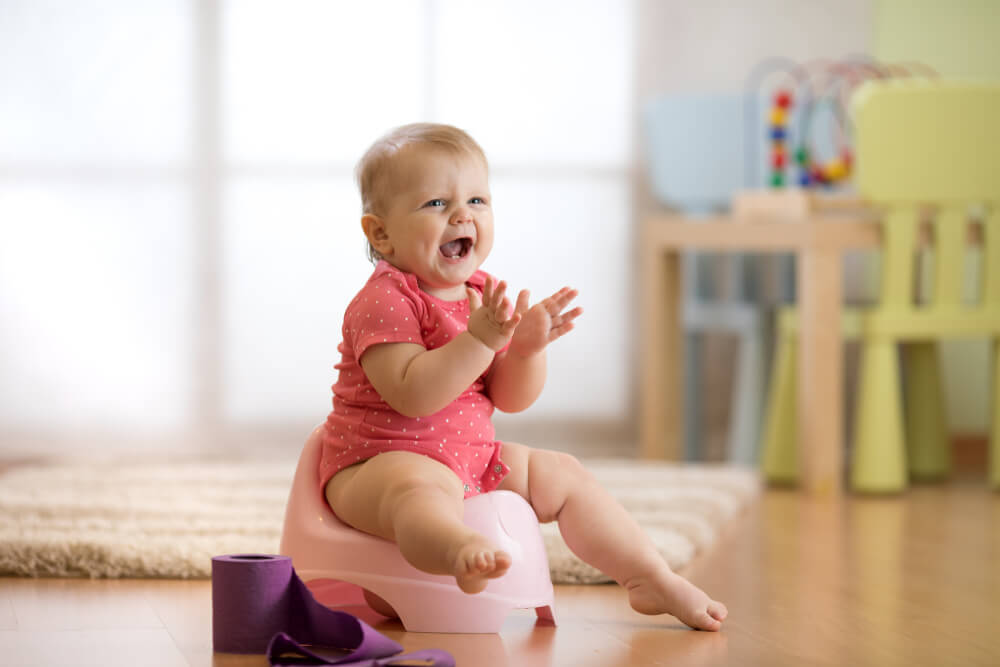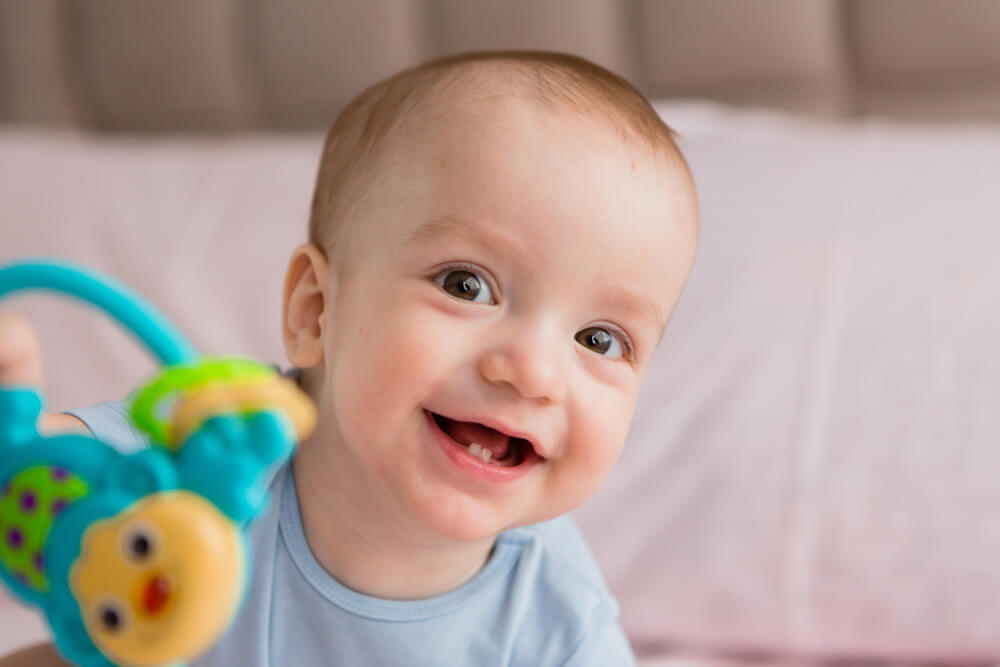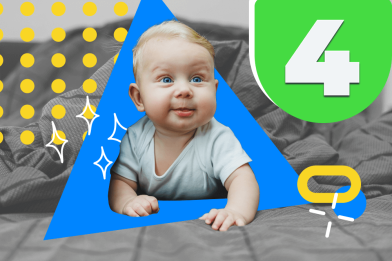Development Milestones and Schedule For Your 9-Month-Old Baby
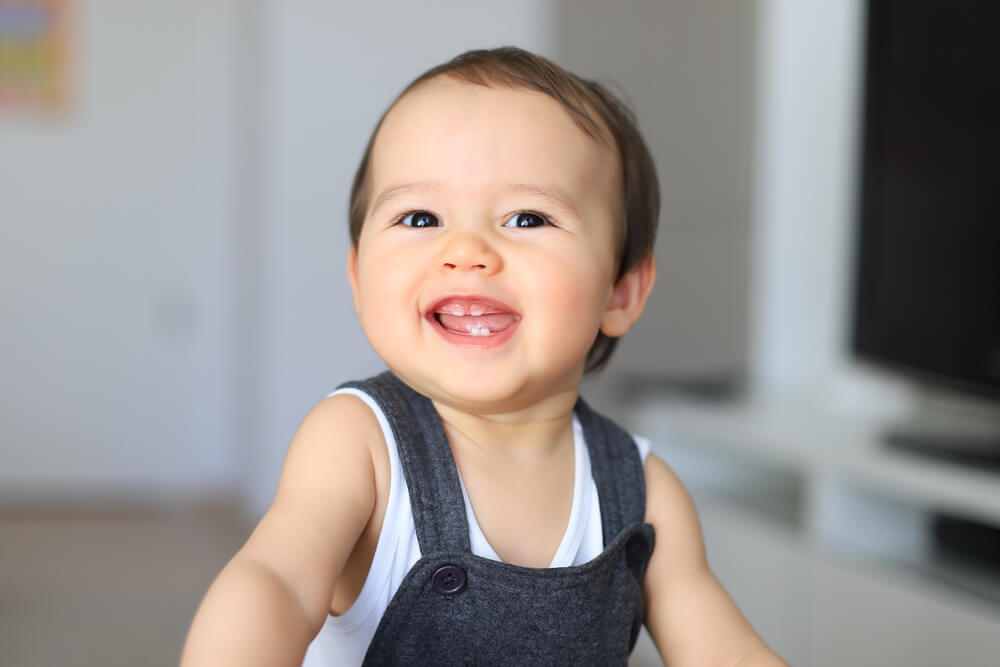
9 months is a big milestone for both babies and their parents. At this age, your little one will become more mobile and active, enjoying a range of new experiences and learning new things with every passing day. In this guide, we’ll cover all you need to know about your 9-month-old baby, including key milestones and important health and well-being tips.
Contents:
- Physical Development
- What Should a Child Do at 9 Months?
- 9-Month-Old Baby Schedule
- Activities for a 9-Month-Old Baby
- Typical Diseases, Remedies and Health Concerns
- Helping Baby Development
- FAQ
Physical Development
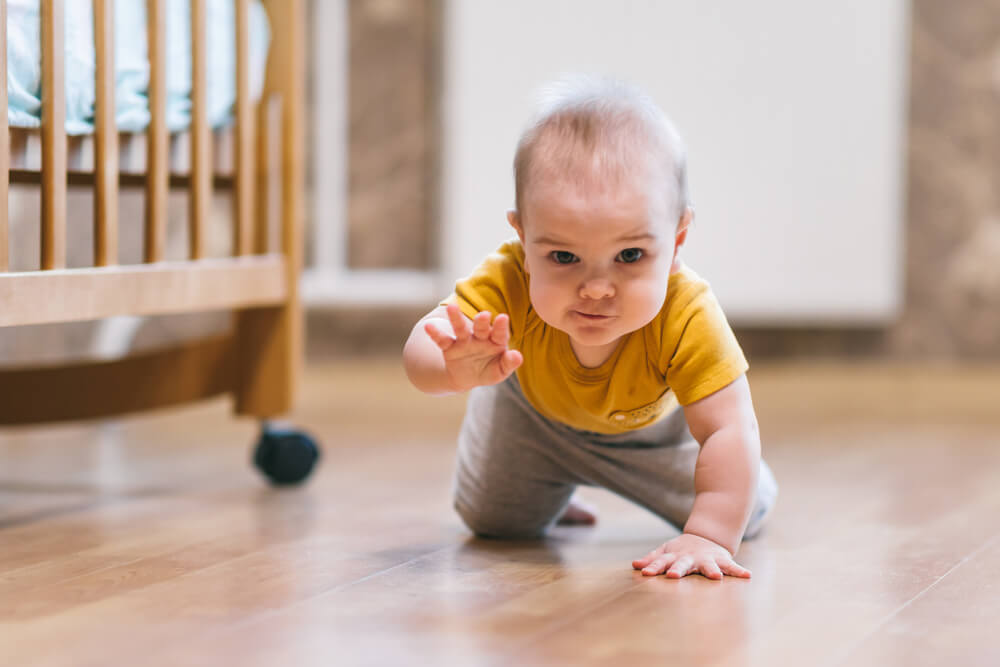
tartanparty/Shutterstock.com
Let’s begin with a look at your baby’s physical development by the time they reach 9 months of age. At this point, your little one will have grown quite a lot when compared to the tiny newborn baby you brought home all those months ago.
They’ll also be a lot stronger and more physically capable than they were in those early days, as 9-month-old babies are generally capable of sitting (either with or without some kind of support) and pulling themselves up to a standing position.
They may also be able to crawl around a little, and they should be learning how to pick things up and grasp onto items of food, usually using their fingers and thumbs as a kind of “pincer” to hold onto things and feed themselves.
How about height and weight:
- the average weight of 9-month-old babies is around 18 lbs for a girl and 19.5 lbs for boys;
- in terms of height, girls at this age measure around 27.5″, while boys are just over 28″;
- in terms of shoe sizes, both sexes average a size 3.5.
All babies are different, of course, and some develop faster or slower than others, so there’s no need to feel too much concern if your baby is a little behind in some areas or not quite as tall or heavy as the rest, just yet.
As long as your baby is developing and growing, everything should be fine, but you can speak with your pediatrician if you have any concerns.
What Should a Child Do at 9 Months?

DeymosHR/Shutterstock.com
Let’s take a look at some of the key milestones that tend to occur around the age of 9 months. Remember, your baby may be a little ahead or behind the average here, and there’s usually nothing to worry about if your child hasn’t quite reached some of these milestones just yet.
Emotional Milestones
In terms of emotional milestones, 9-month-old babies tend to be quite strongly attached to their parents. They may show signs of fear or wariness when strangers are around and will often cling to their mother or father in public places or in strange, new environments.
They’ll usually be able to show a range of facial expressions at this point, like smiling and laughing when you play games with them like peek-a-boo and sad or angry faces when they’re upset, hungry, or frustrated by something.
Around this age, babies also usually should be able to recognize the sound of their own names and will look up or respond in some way if they hear someone call their name.
They’ll also notice when their parents aren’t around and may look around or react in some way if a parent leaves the room.
Language Milestones

DeymosHR/Shutterstock.com
In terms of language and communication, your baby will also be reaching some big milestones at the age of 9 months. For example, they should be able to make a lot of different sounds, even if it all sounds like gobbledygook to you.
Many babies at this age are quite chatty. They won’t be forming lots of real, recognizable words, but they might be making many sounds and have various sounds to express different emotions or reactions. They may even be able to say some very basic versions of “Mama” and “Dada”.
At the age of 9 months, it’s also not uncommon for babies to be able to recognize certain words, even if they aren’t able to repeat them. For example, you might ask “Where’s your teddy?” and your baby will point to their teddy or pick it up in response.
Cognitive Milestones
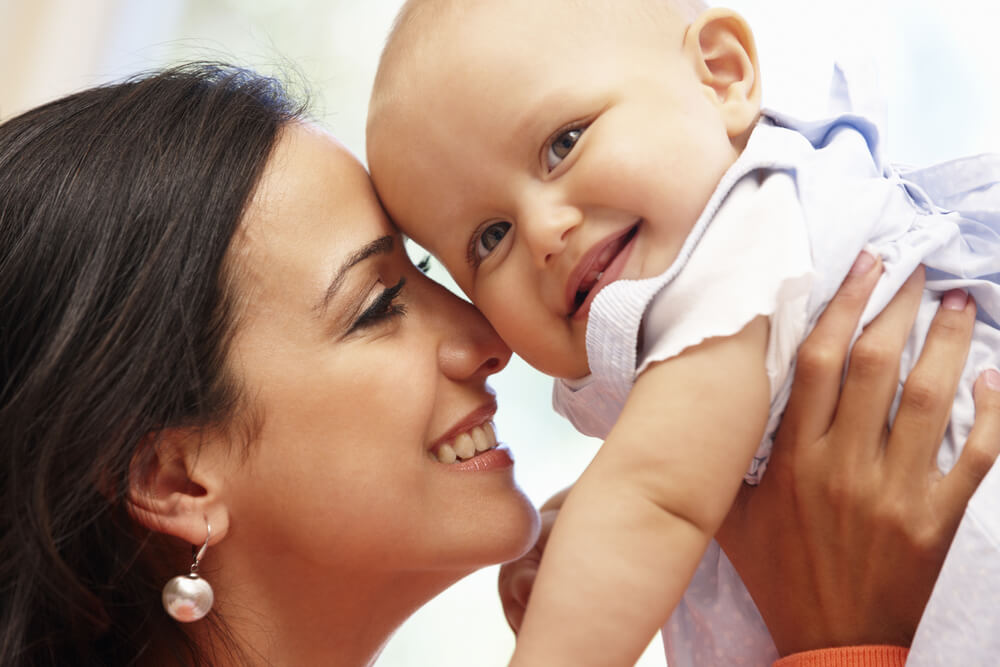
Monkey Business Images/Shutterstock.com
The first year of a baby’s life is hugely important for their brain development, and their brain is growing stronger with every day that passes as new cells form and connections grow between those cells.
You can contribute to this growth by stimulating your baby with books, songs, games, and more.
In terms of actual milestones, babies at this age should develop a good level of spatial and situational awareness. For example, if they drop an item out of sight, they’ll start to look around for it, understanding that it must be somewhere nearby.
As explained above, your baby should also be able to recognize certain sounds and words at this stage and understand certain meanings of basic words like “No” and “Mama”. They’ll also have a stronger memory than before and be able to remember faces and objects.
Movement Milestones
Finally, we have the movement milestones. Here, too, your baby will be developing nicely and gradually becoming capable of new physical feats and movement abilities that simply were not possible before, such as the ability to sit up by themselves.
Babies at this age may also be able to pull themselves into a standing position as their motor skills start to improve, and they’ll become better at picking things up, putting things down, and holding onto things.
At this age, you may notice your child becoming more physically curious, picking up things they find around them, hitting things together to see what happens, and trying to combine objects or move them around in different ways to get a better look at them.
9-Month-Old Baby Schedule
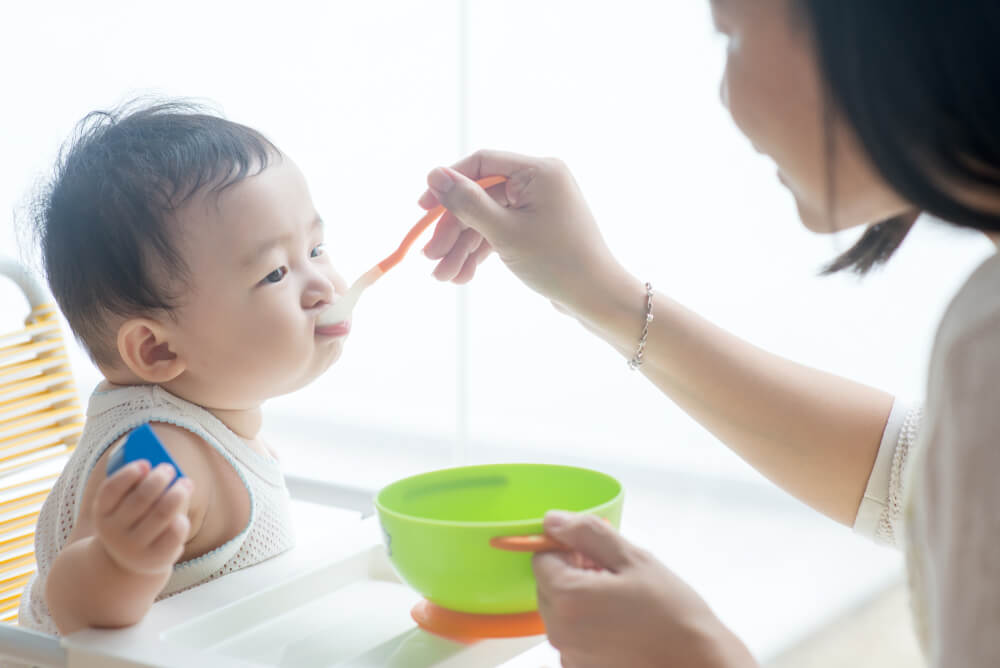
szefei/Shutterstock.com
As your baby gets older, their feeding and sleeping schedules will also start to change in some big ways. They may not need quite as many feedings as they once did, for example, and their sleeping schedule may become more structured and predictable as time goes on.
Feeding
At the age of 9 months, your baby will require a mixture of breast milk or formula and solid foods several times a day. Here are some expert-recommended schedules for formula and breastfed babies:
Formula
If your baby is on formula, you’ll need to feed them around 6-8oz of formula six times daily, for a maximum of 24-32oz per day. They’ll also need 6-8oz solid food three times a day, with a couple of small 2oz snacks in between.
Read also What Are The Best Baby Formulas and Why Some of Them Are Disappearing?
Breastfed
For breastfed babies, the schedule is slightly different. You’ll want to feed your baby three to four times daily until they’re satisfied, along with 6-8oz of solid food three times a day and a couple of small (2oz) snacks.
Sleeping
On average, babies that are 9 months old will sleep around 14 hours a day, but anything from 12 to 16 hours is perfectly normal, so it’s fine if your baby sleeps a little more or less than the average. They’ll usually sleep right through the night for around 10-12 hours in total, with a couple of short naps (1-2 hours each) during the daytime.
Exercise and Activities
In terms of exercise, games, and activities, you should be able to start doing more with your 9-month-old than you have been able to in the past, as they’ll have more of a fixed sleeping schedule and plenty of time awake during the day to play and learn.
You’ll want to ensure that they have enough rest and set mealtimes, but when you get some free time and your baby is quite energetic, you can engage in some playtime and activities like walking around, reading books, going outside, and so on. Try to fit at least a couple of play sessions in each day.
Activities for a 9-Month-Old Baby
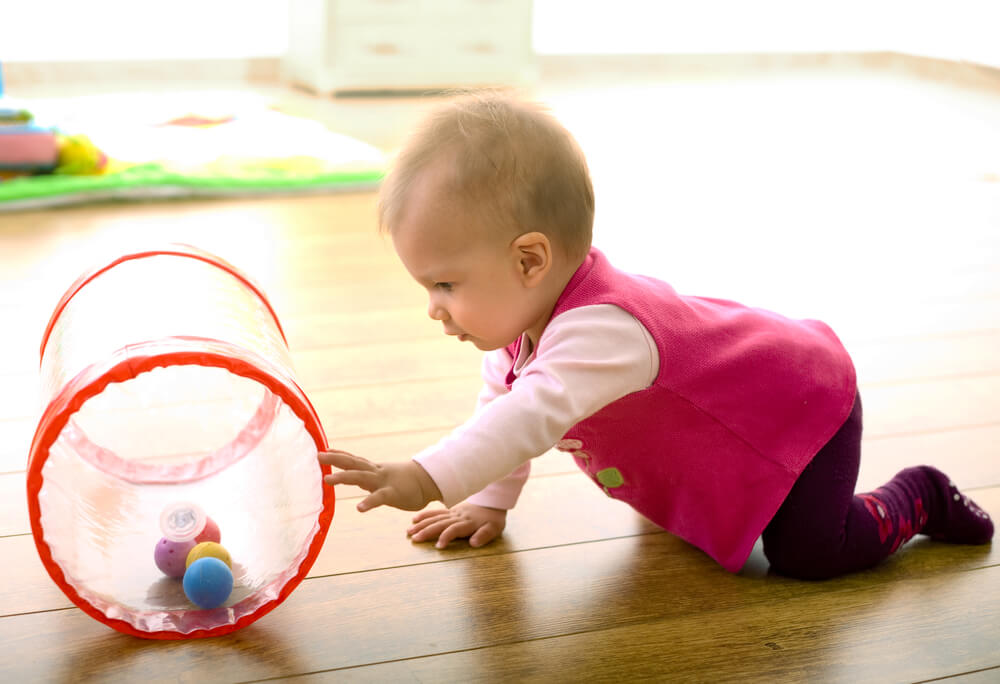
StockLite/Shutterstock.com
There are plenty of fun and interesting activities you can try out with your 9-month-old to have fun and help them develop new skills.
Games
Good examples of fun games you can play with your little one at the age of 9 months:
- Peek-a-boo – A classic game where you hide your face behind your hands or an object and poke out to say “Peek-a-boo!” at random.
- Pat-a-cake – Try singing the “Pat-a-cake” song and tapping your hands together with your baby’s. They might not get the rhythm right away but they’ll have a lot of fun learning!
- Singing – Singing songs and clapping along with the music or making little movements during rhymes like “The Wheels on the Bus” is another fun option with 9-month-olds.
- Pretend Phone – Pick up an object, like a banana, hold it to your ear, and pretend to chat into it like a phone. Then hand your baby the object and encourage them to do the same.
Toys
There are also plenty of great toys aimed at babies of 9 months of age. Here are a few of the most popular options:
- Pop-Up – Pop-up toys are really great for babies at this age. Look for one with little animals or fun pictures that pop up when the baby presses switches or flicks levers.
- Cups – Stacking cups are also great for babies at this age, teaching them about sizes, colors, and the basics of physics as they stack the cups together.
- Blocks – Safe building blocks for babies can also be super to play around with your 9-month-old and will allow them to express their creative side.
More
There are also plenty of other things you can do with your little one to help their development and make their days interesting, such as:
- Strolls – Head outside with your baby in their stroller to explore the local area or visit a park and watch the birds or admire the wildlife.
- Water – Get a little pool of water in your backyard or somewhere else safe and let your baby splash around or play with their toys in the water.
- Reading – Some basic picture books and books with textures and interactive elements are super for giving your little one a head-start in their education.
Typical Diseases, Remedies and Health Concerns

Monkey Business Images/Shutterstock.com
At the age of 9 months, your little one should have a standard 9-month check-up. This will involve the doctor checking their weight, size, and their general development. They may also carry out a few tests to look for any health issues like anemia.
There aren’t any major diseases or health concerns for babies at this age, but their immune systems are still fragile and developing, so it’s important to protect them, keep them clean, and try to minimize their exposure to viruses and bacteria.
Since babies at this age are also more curious and touching more things, you also need to be careful to control what they have access to, like pills in the medicine cabinet and power outlets around the living room. You should cover up electric outlets and keep dangerous things out of your baby’s reach.
Helping Baby Development
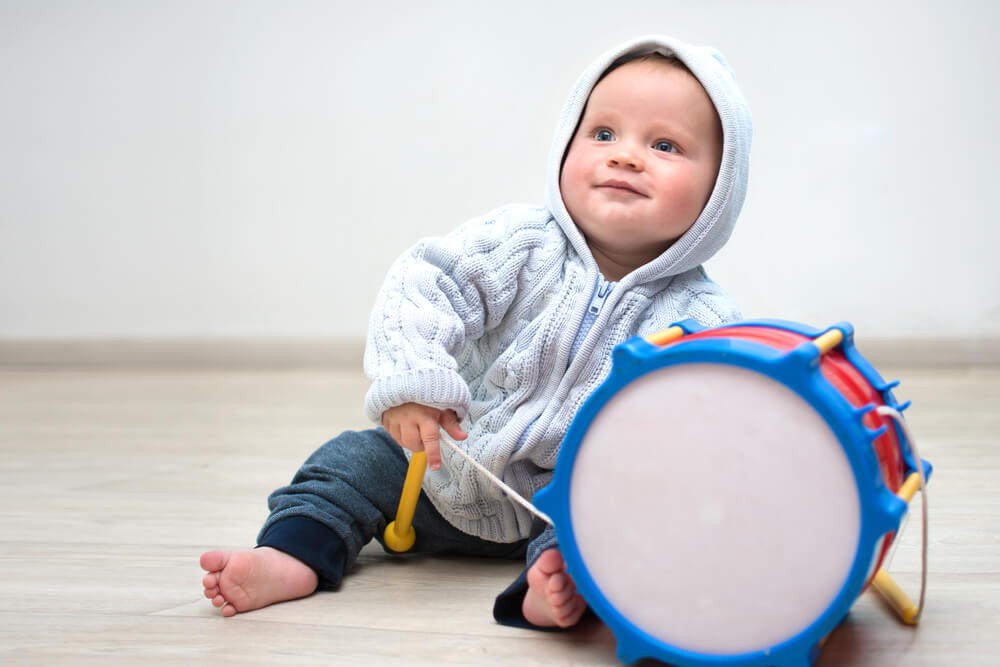
MJfotografie.cz/Shutterstock.com
Here are a few tips you can keep in mind to help your baby’s development at this age:
- Communicate – Chat with your baby and engage with them often to improve their communication skills.
- Supervise – Always supervise your baby when they’re crawling around or interacting with things to help them stay safe.
- Play – Play with your baby as often as you can to let them experience new things and learn skills.
- Encourage – Encourage your little one to move around and introduce them to safe new items or new locations regularly.
FAQ
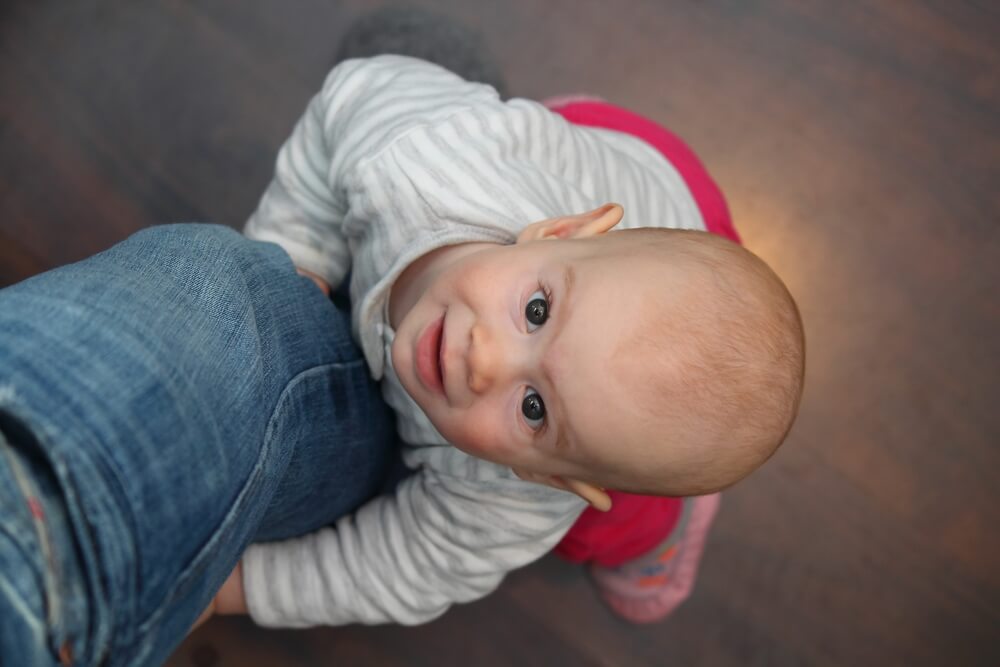
riopatuca/Shutterstock.com
What Skills Should a 9-Month-Old Have?
Every baby is different, but at this age, most babies can crawl, sit up, pull themselves to a standing position, and pick up items.
What Words Should a 9-Month-Old Say?
At this age, most babies can’t talk properly but will make some basic sounds and may be able to say “Mama” and “Dada”.
Is Walking at 9 Months Early?
It’s relatively early, yes, as studies show that most babies take their first steps at the age of 1, but some can walk as early as 8 months.
An Exciting Milestone for the Whole Family
Nine months is a big milestone for everyone, and there’s lots to look forward to at this age and plenty more big milestones and stages right around the corner. Remember to follow the tips listed above and enjoy spending time with your baby as much as you can, while sticking to a good sleep and feeding regime for their health and happiness. And be sure to share this guide around to help other parents with their 9-month-old children.
The picture on the front page: Onjira Leibe/Shutterstock.com
Проверьте электронный ящик














